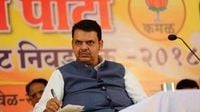In a significant policy reversal, the Maharashtra government has decided to roll back its controversial order mandating Hindi as a third language for students in Classes 1 to 5 in Marathi and English-medium schools. This decision, announced on April 22, 2025, by Maharashtra School Education Minister Dadaji Bhuse, comes after mounting pressure from various political factions and public outcry.
The initial order, issued on April 16, had made Hindi compulsory, sparking widespread protests and criticism across the state. Bhuse confirmed that the term 'mandatory' will be eliminated, allowing schools to accommodate other language preferences if a substantial number of students request it. "The three-language formula remains, but schools must accommodate other language choices if a significant number of students in a class request it," he stated after a Cabinet meeting.
Chief Minister Devendra Fadnavis, who had initially defended the imposition of Hindi, briefed the Cabinet about the three-language policy as outlined in the new National Education Policy (NEP). A senior minister present at the meeting revealed that Fadnavis indicated Hindi would now be treated as an optional subject rather than a requirement.
On April 21, Tamil Nadu Chief Minister M K Stalin criticized the Maharashtra government's decision, claiming it was an attempt to impose Hindi on non-Hindi speaking states. He remarked on social media, "Facing a massive backlash for imposing Hindi as the third language, Maharashtra CM Devendra Fadnavis now claims that only Marathi is compulsory in the state. This is a clear manifestation of his trepidation over the widespread public condemnation against imposition of Hindi on non-Hindi speaking States."
In response, Fadnavis defended his stance on X, asserting, "NEP never insisted or made compulsion on language choice but only asked to study any 2 Indian languages other than English, out of 3. As far as Maharashtra is concerned, we are open to Hindi, Tamil, Telugu, Kannada, Sanskrit or any language of student’s choice which they wish to study as the third language. Main question is why are you not open to multi-lingualism & have a problem if someone wants to study in Hindi?" He suggested that Stalin should gain a deeper understanding of the NEP.
Before the rollback, Fadnavis had attempted to clarify that there was no imposition of Hindi, reiterating that Marathi remains compulsory. "It is wrong to say that attempts are being made to impose Hindi. Hindi has not been made mandatory instead of Marathi. Marathi is a must," he stated.
The backlash against the Hindi mandate was swift and widespread, with opposition parties in Maharashtra uniting against what they termed the imposition of Hindi. The Maharashtra Navnirman Sena, led by Raj Thackeray, was particularly vocal in its opposition, while the Shiv Sena (UBT), led by Uddhav Thackeray, accused the BJP of attempting to create divisions along linguistic lines. Congress leader Vijay Waddetiwar labeled the move as an "attack on the Marathi language" and an effort to undermine state autonomy.
The Maharashtra government's quick change of course reflects the state's complex history of linguistic politics. The BJP is acutely aware of the potential backlash that could arise from being perceived as anti-Marathi, especially in a state where linguistic identity plays a crucial role in political dynamics.
The decision to pause the Hindi mandate aligns with the recommendations of the Maharashtra government's language consultation committee, which had urged Fadnavis to reconsider the policy. Bhuse indicated that a fresh government resolution (GR) would be issued to formalize the changes.
As the situation develops, the Maharashtra government's handling of language policy will be closely watched, particularly in light of the ongoing debates about the role of Hindi and regional languages in the education system. The rollback is seen as a victory for proponents of linguistic diversity and a testament to the power of public dissent in shaping government policy.
In conclusion, the Maharashtra government's decision to make Hindi optional rather than mandatory in early education reflects a broader struggle over language and identity in India. With political leaders across the spectrum weighing in, the implications of this policy shift will likely resonate in the state's educational landscape for years to come.


